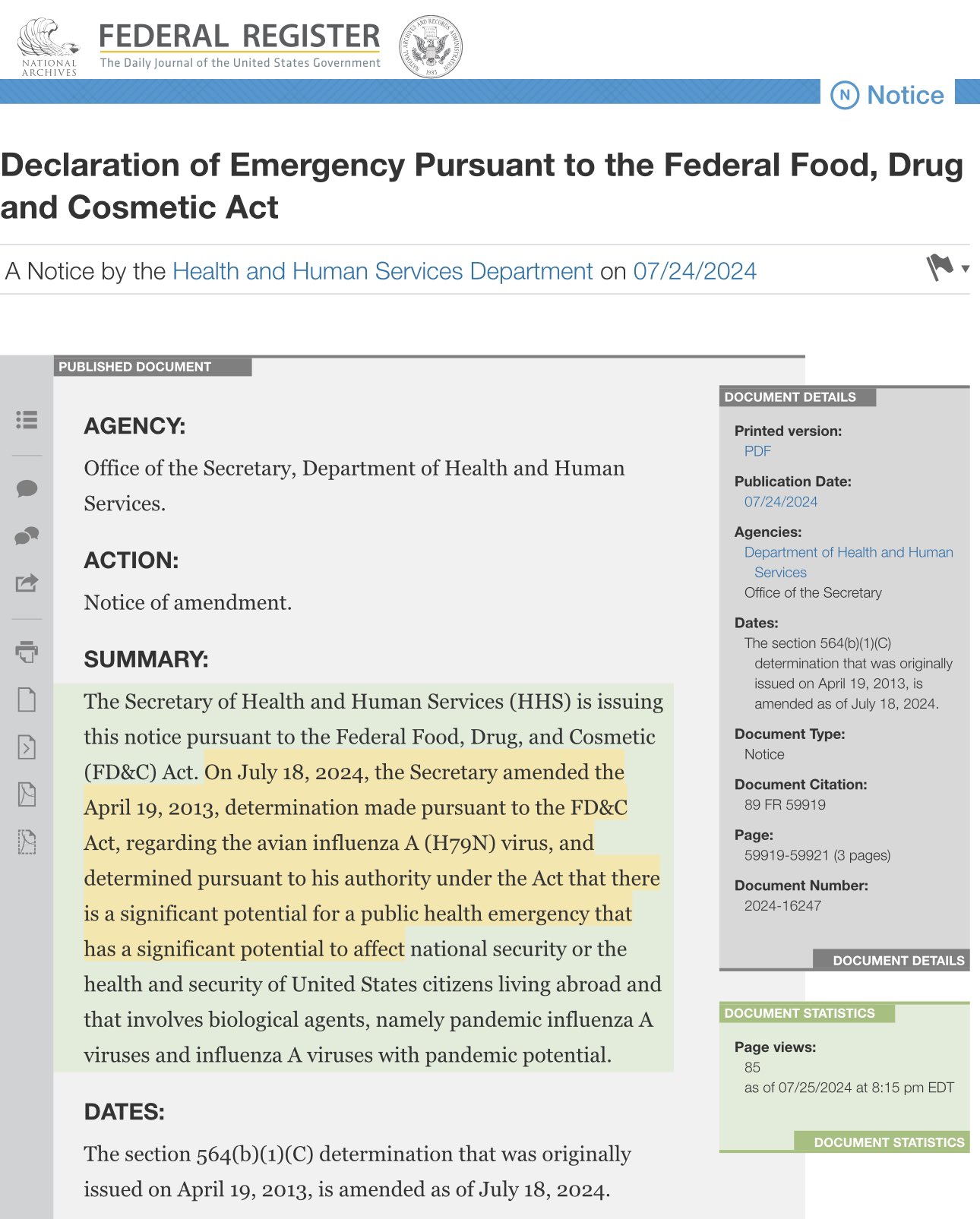The Duke Human Vaccine Institute has received $7 million in funding from the National Institute of Allergy and Infectious Diseases (NIAID) to develop H5N1 avian flu vaccines for use in clinical trials.
The NIAID provided the funding to Duke “under the contract called the Collaborative Influenza Vaccine Innovation Centers (CIVICs).”
Duke awarded $7 million to create bird flu vaccines for clinical trials https://t.co/XlHX9m45d1
— WRAL NEWS in NC (@WRAL) September 3, 2024
“We will be developing two investigational mRNA vaccines targeting avian influenza,” said Thomas Denny, chief operating officer of the Duke Human Vaccine Institute, according to DukeHealth.
“We expect to complete manufacturing this fall, with the goal of having vaccines ready for phase 1 clinical trials to begin in early 2025,” he added.
Per DukeHealth:
The funding for the avian flu vaccines is a distinct award under the CIVICs program, which was previously awarded to Duke for vaccine development, trials and manufacturing, worth a potential $400 million.
The Duke Human Vaccine Institute has a unique position in vaccine development with a production facility that meets good manufacturing practice standards to produce high-quality vaccines.
“Since April 2024, 10 human cases of avian influenza A(H5) infection have been reported in the United States. Four of these cases were associated with exposure to sick dairy cows and six were associated with exposure to avian influenza A(H5N1)-infected poultry,” the U.S. Centers for Disease Control and Prevention (CDC) stated in July.
“Similar to previous cases, illness was mild,” the agency added.
Yet, the NIAID pumps millions of taxpayer dollars to develop mRNA ‘vaccines.’
As 100 Percent Fed Up noted, the Department of Health and Human Services (HHS) released an amendment to the Federal Food, Drug, and Cosmetic (FD&C) Act regarding avian influenza, stating “there is a significant potential for a public health emergency.”
“On July 18, 2024, the Secretary amended the April 19, 2013, determination made pursuant to the FD&C Act, regarding the avian influenza A (H79N) virus, and determined pursuant to his authority under the Act that there is a significant potential for a public health emergency that has a significant potential to affect national security or the health and security of United States citizens living abroad and that involves biological agents, namely pandemic influenza A viruses and influenza A viruses with pandemic potential,” the notice read.
“Secretary of HHS Becerra expanded the declaration of emergency and determined pursuant to his authority under the Act that there is a significant potential for a public health emergency that has a significant potential to affect national security or the health and security of United States citizens, which would allow FDA commissioner to issue EUA to include the avian flu (H79N) virus products,” Dr. Kat Lindley said.
Secretary of HHS Becerra expanded the declaration of emergency and determined pursuant to his authority under the Act that there is a significant potential for a public health emergency that has a significant potential to affect national security or the health and security of… https://t.co/1xrW0hV39J pic.twitter.com/h5VgDdnMzA
— Dr. Kat Lindley (@KLVeritas) July 26, 2024
* Image from Dr. Kat Lindley X Post *
Also, the World Health Organization (WHO) launched an initiative to accelerate the development of mRNA shots for bird flu.
World Health Organization Launches Project To Accelerate Development Of Bird Flu mRNA Shots
“A new project aiming to accelerate the development and accessibility of human avian influenza (H5N1) messenger RNA (mRNA) vaccine candidates for manufacturers in low- and middle-income countries has been launched today,” the WHO announced.
“The Argentinian manufacturer Sinergium Biotech will lead this effort leveraging the World Health Organization (WHO) and the Medicines Patent Pool (MPP) mRNA Technology Transfer Programme,” it added.
Source link


